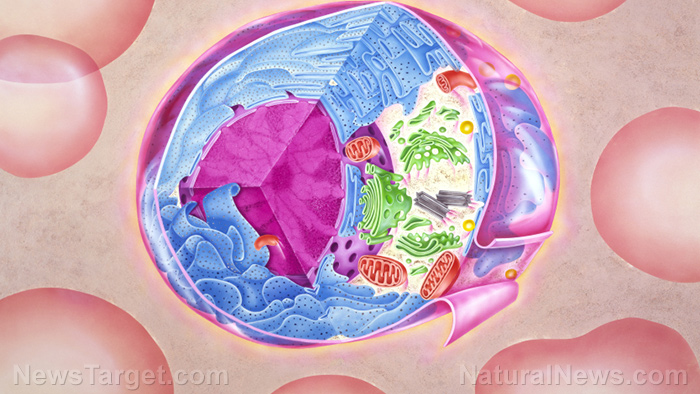Being obese can cause breast cancer cells to become more aggressive
10/10/2018 / By Ellaine Castillo

Obesity has been linked to numerous health problems like cardiovascular diseases and cancer. A recent study observed that there is a link between obesity and metastasis.
Previous studies have shown that obese individuals are more at risk of cancer. Obesity is a condition where there is an accumulation of body fat and a person’s body weight exceeds the ideal weight by at least 20 percent. This causes an expansion of adipose tissue that leads to the release of adipocyte cytokines known as adipokines. These adipokines serve as signals that help the adipose tissue perform its role in regulating cell function, as well as the prevention and spread of disease. Some examples of adipokines are: leptin, TGF-beta, adiponectin, and tumor necrosis factor.
Two major causes of breast cancer deaths in women are tumor recurrence and metastasis, which occur even after the original tumor has been surgically removed. This is why removing the tumor does not necessarily cure cancer.
In this study, conducted by researchers from Helmholtz Zentrum München, Technische Universität München (TUM), and Heidelberg University Hospital, it was determined that the rate of metastasis is altered by a change in energy metabolism. This alteration is brought about by an increase in cytokine levels, specifically TGF-beta and leptin, brought about by obesity. As a result, the function of the lipogenic enzyme Acetyl-CoA-carboxylase 1 (ACC1) in fatty acid synthesis is impaired. When ACC1 is inhibited, the fatty acid precursor acetyl-CoA accumulates and turns on specific gene switches that activate gene programs involved in metastasis. In addition to this, the release of these adipokines has also been linked to chronic inflammation where tumor cell motility, invasion, and epithelial-mesenchymal transition is favored.
This study provides further insight into the link between obesity and metastasis. Now that the molecular mechanism behind has been determined, the next step is to find out therapeutic interventions for these mechanisms.
In one experimental model, the researchers used antibodies to block the leptin receptors involved in the pathway. This led to a reduced metastasis of breast cancer cells.
According to the researchers, “Blocking the signaling pathways and switching off the metastasis-related genes could be a therapeutic target.”
Overall, this study emphasizes what people have known for a long time: Obesity is dangerous to a person’s health. (Related: Obesity linked to increased health risks and birth defects.)
How to naturally lose weight
In order to avoid the repercussions of obesity on cancer, it is best to maintain a healthy weight. Here are some suggestions on how to naturally lose weight:
- Get enough sleep – A study revealed that not getting enough sleep slows down the body’s metabolism, which could lead to the storage of unused energy as fat. Aside from this, lack of sleep also leads to insulin and cortisol production, which also cause fat storage.
- Reduce stress levels – When a person is stressed, the brain will signal the release of adrenaline and cortisol, which initially decrease appetite. However, for chronic stress, there is a prolonged presence of cortisol in the bloodstream. Cortisol signals an increase in appetite to replenish nutrients, such as carbohydrates, which are stored as fats if unused.
- Reduce sugar and carbohydrate intake – Eating less sugar and fewer carbohydrates leads to a decline in appetite. This leads to reduced calorie intake so the body will start using stored fats to provide energy.
- Drink enough water – Studies show that drinking water can help with weight loss. Drinking half a liter of water can lead to a 24 to 30 percent increase in the amount of calories burned within an hour. In addition to this, drinking water before meals can also reduce calorie intake.
- Increase protein consumption – When digesting proteins, the body burns a lot of calories. Studies show that following a high-protein diet can boost metabolism by 80 to 100 calories in a day. Aside from this, a high-protein diet can also reduce appetite.
- Exercise – Along with eating a healthy diet, it is also recommended to introduce exercises into your routine. Lifting weights has been associated to burning calories and preventing the metabolism from slowing down.
Learn more about the link between obesity and cancer metastasis by visiting Cancer.news today.
Sources include:
Tagged Under: breast cancer, diet, fitness, metastasis, nutrition, obesity, prevention, slender



















